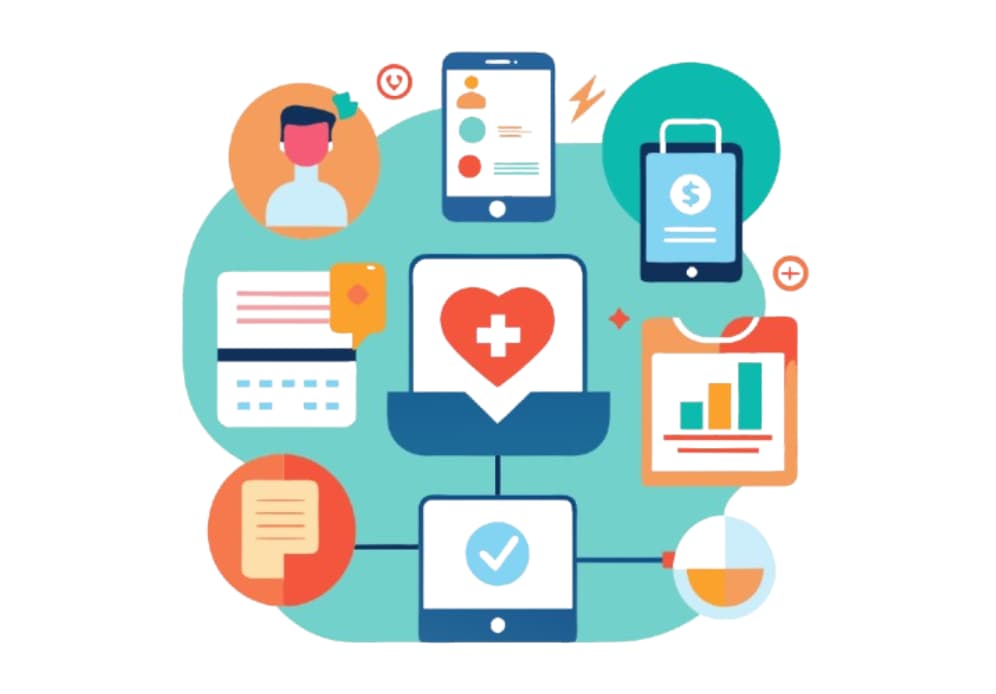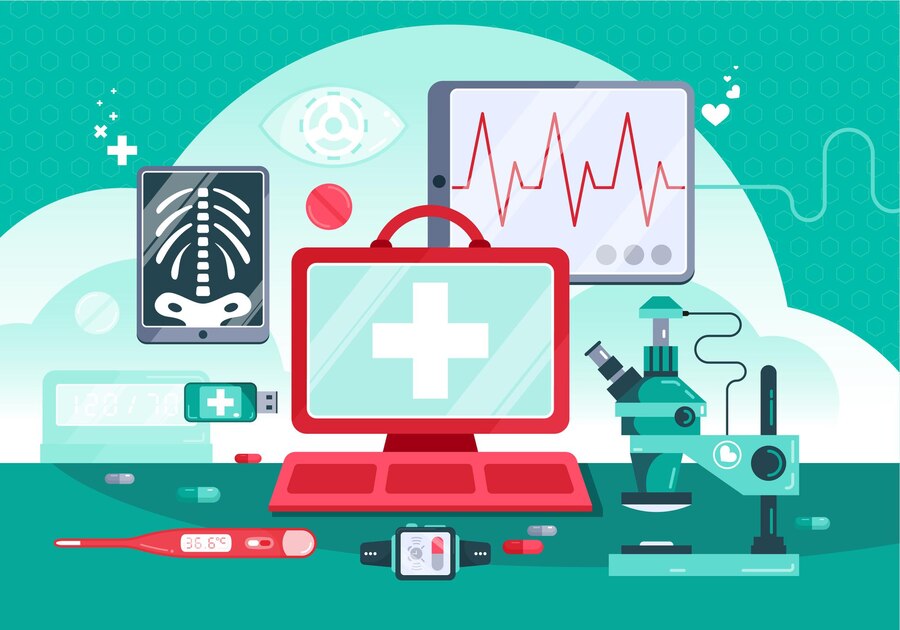In today’s digital age, healthcare is undergoing a significant transformation. With the rise of technology, the patient experience has drastically evolved, making healthcare more accessible, efficient, and patient-centric. One of the most notable advancements is the use of digital platforms, which are increasingly becoming integral in enhancing patient care. From improving communication between patients and healthcare providers to streamlining appointment scheduling and personalized treatment plans, digital platforms are reshaping the landscape of healthcare. In this article, we will explore how digital platforms enhance patient care, focusing on the role of digital patient engagement platforms and their benefits to both patients and healthcare providers.
Introduction To Digital Platforms In Healthcare
Healthcare is no longer confined to face-to-face interactions within a clinical setting. Digital platforms have introduced innovative ways for patients and healthcare providers to interact, providing real-time communication, data collection, and remote monitoring. These tools, often referred to as digital patient engagement platforms, have proven to be instrumental in enhancing the quality of care, improving patient outcomes, and making healthcare services more efficient.
What are Digital Platforms in Healthcare?
Digital platforms in healthcare refer to various technological systems and applications that enable the exchange of health information between patients and providers. They include tools like telemedicine platforms, patient portals, mobile health (mHealth) applications, and remote patient monitoring systems. These platforms provide patients with access to their health data, treatment plans, and real-time communication, while also allowing healthcare providers to deliver personalized and efficient care.
Key Benefits Of Digital Platforms In Patient Care
The use of digital platforms in healthcare offers numerous benefits that directly improve patient care. Let’s explore some of the most impactful advantages.
Improved Communication and Engagement
One of the most significant ways digital platforms enhance patient care is by improving communication between patients and healthcare providers. Traditional methods of communication, such as phone calls or in-person appointments, can be limited in availability and responsiveness. In contrast, digital patient engagement platforms allow patients to communicate with their healthcare providers through secure messaging, video consultations, and online chat features.
- Real-Time Communication: Patients can get answers to their questions without waiting for appointments.
- 24/7 Accessibility: Patients can access care anytime, whether through self-service portals or telemedicine consultations.
- Improved Follow-up: Providers can easily follow up with patients after visits, improving adherence to treatment plans.
Enhanced Access to Healthcare Services
Another major benefit is the increased access to healthcare services. Digital platforms break down geographical barriers, enabling patients in remote or underserved areas to receive care.
- Telemedicine: Allows patients to consult with healthcare professionals from the comfort of their homes.
- Online Scheduling: Patients can book appointments online, reducing wait times and making healthcare more convenient.
- E-Prescriptions: Medications can be prescribed and filled electronically, reducing the need for in-person visits.
| Benefit | Traditional Healthcare | Digital Healthcare Platforms |
|---|---|---|
| Communication | Limited | 24/7 real-time access |
| Appointment Booking | Manual and time-consuming | Quick and online |
| Prescription Refill | In-person | E-prescriptions |
Personalized and Data-Driven Care
Digital platforms also enable personalized and data-driven care, which leads to better patient outcomes. By collecting and analyzing patient data, healthcare providers can offer customized treatment plans based on an individual’s health history, preferences, and real-time data.
- Wearable Devices: Devices like fitness trackers and heart monitors feed real-time data into patient portals, allowing healthcare providers to monitor patient progress remotely.
- Patient History and Analytics: Digital platforms compile patient records and use predictive analytics to identify potential health risks, allowing for early intervention.
- Customized Care Plans: Personalized treatment plans can be created based on the patient’s specific needs, lifestyle, and conditions.
Types of Digital Platforms Used in Healthcare
Digital platforms come in various forms, each designed to serve different aspects of patient care. Below are some of the most common types of platforms utilized in healthcare.
Telemedicine Platforms
Telemedicine platforms allow healthcare providers to conduct virtual consultations with patients via video or phone calls. These platforms are essential in providing care for patients in remote areas or those unable to visit healthcare facilities in person.
Patient Portals
Patient portals are secure online platforms where patients can access their health records, test results, and treatment plans. These portals also offer communication tools for patients to contact their healthcare providers.
Mobile Health Apps
Mobile health (mHealth) apps are increasingly popular for managing health conditions, medication adherence, and fitness tracking. These apps empower patients to take control of their health and provide valuable data for healthcare providers.
Remote Monitoring Systems
Remote monitoring systems allow healthcare providers to track patient health data in real-time, often using wearable devices. These systems are crucial for managing chronic conditions like diabetes, heart disease, and hypertension.
Role Of Digital Patient Engagement Platforms
A digital patient engagement platform is a comprehensive solution that combines various digital tools to improve patient-provider interactions. These platforms are designed to foster patient involvement in their care journey, thereby improving adherence to treatment plans, overall satisfaction, and clinical outcomes.
Features of Digital Patient Engagement Platforms:
- Secure Messaging: Patients can communicate with healthcare providers through HIPAA-compliant messaging systems.
- Appointment Reminders: Automated notifications help reduce no-shows and missed appointments.
- Health Education: Patients receive educational content based on their condition, helping them stay informed about their treatment.
These platforms enable continuous engagement between patients and healthcare providers, making healthcare more proactive and patient-centered.
Challenges Of Implementing Digital Platforms In Healthcare
While digital platforms offer numerous benefits, their implementation is not without challenges. Some of the key issues include:
- Data Privacy and Security: Protecting sensitive patient information is paramount. Healthcare providers must ensure compliance with privacy regulations like HIPAA (Health Insurance Portability and Accountability Act).
- Digital Divide: Not all patients have access to digital devices or high-speed internet, limiting the reach of digital healthcare solutions.
- Adoption Resistance: Some healthcare providers and patients may resist adopting new technologies due to unfamiliarity or concerns over usability.
Future Trends in Digital Patient Engagement
The future of healthcare will undoubtedly be shaped by advancements in digital patient engagement platforms. Some emerging trends include:
- Artificial Intelligence (AI) Integration: AI-powered platforms can offer personalized care recommendations, predict patient outcomes, and optimize treatment plans based on real-time data.
- Virtual Reality (VR) in Patient Care: VR is being explored for use in pain management, physical therapy, and patient education.
- Blockchain for Data Security: Blockchain technology is being tested as a secure way to store and share patient data, ensuring privacy and integrity.
Conclusion
Digital platforms have revolutionized the healthcare industry, offering significant enhancements in patient care through improved communication, personalized treatment, and increased access to services. Digital patient engagement platforms are particularly vital in facilitating ongoing patient involvement, empowering individuals to take charge of their health, and ensuring that healthcare providers can deliver efficient, data-driven care. As technology continues to advance, the role of digital platforms in patient care will only become more prominent, ushering in a new era of healthcare that is more accessible, patient-centered, and effective.
What Is a Digital Patient Engagement Platform?
A digital patient engagement platform is a tool that allows healthcare providers to engage with patients through various digital means such as secure messaging, video calls, online portals, and remote monitoring.
How Do Digital Platforms Improve Patient Care?
Digital platforms improve patient care by enhancing communication, offering personalized care, increasing accessibility to healthcare services, and enabling real-time data monitoring.
Are Digital Healthcare Platforms Secure?
Yes, most digital healthcare platforms are designed with strict security measures to comply with data privacy regulations like HIPAA, ensuring that patient information remains confidential and protected.
What Challenges Do Healthcare Providers Face When Adopting Digital Platforms?
Challenges include ensuring data privacy, overcoming the digital divide among patients, and addressing resistance to technology adoption among both patients and providers.






